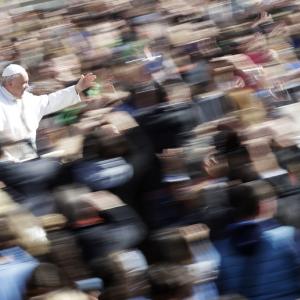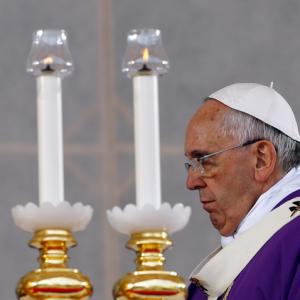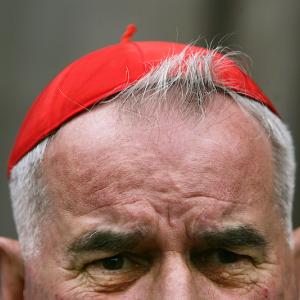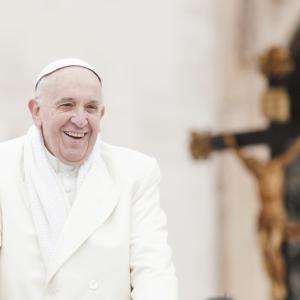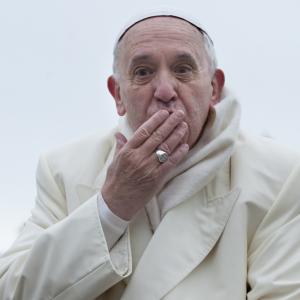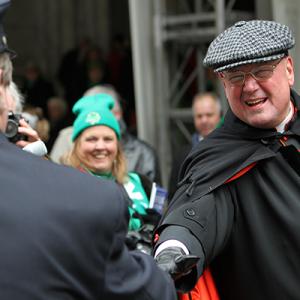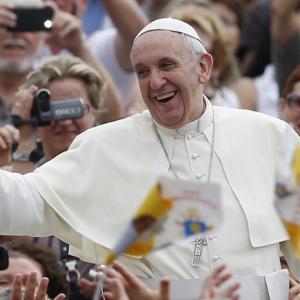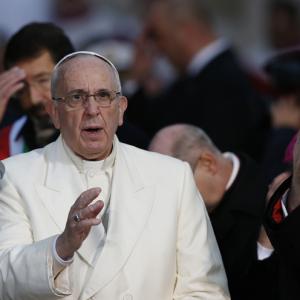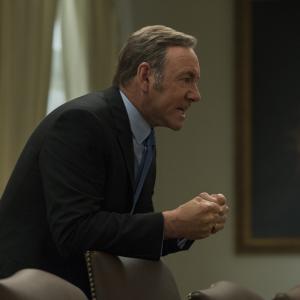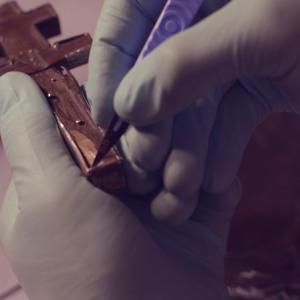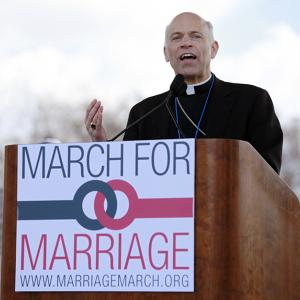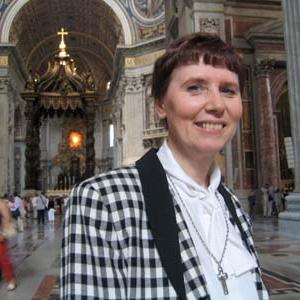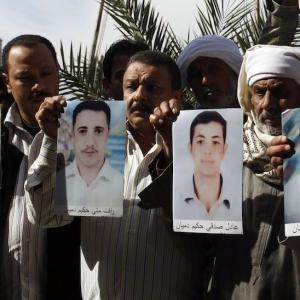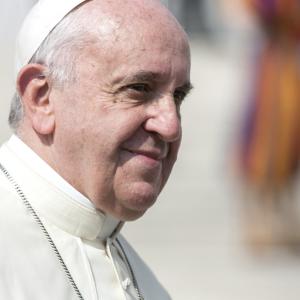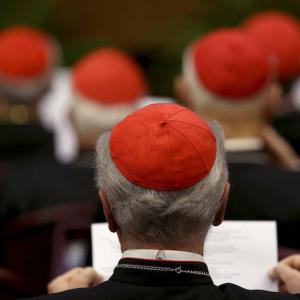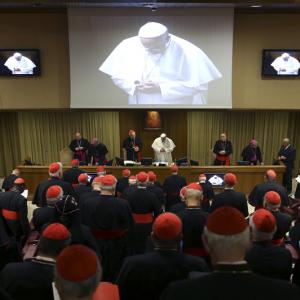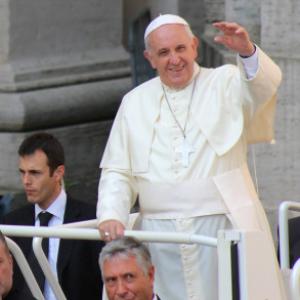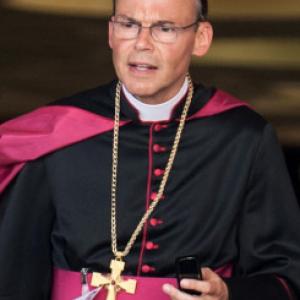David Gibson is an award-winning religion journalist, author, filmmaker, and a convert to Catholicism. He came by all those vocations by accident, or Providence, during a longer-than-expected sojourn in Rome in the 1980s.
Gibson began his journalistic career as a walk-on sports editor and columnist at The International Courier, a tiny daily in Rome serving Italy's English-language community. He then found work as a newscaster across the Tiber at Vatican Radio, an entity he sees as a cross between NPR and Armed Forces Radio for the pope. The Jesuits who ran the radio were charitable enough to hire Gibson even though he had no radio background, could not pronounce the name "Karol Wojtyla" (go ahead -- try it) and wasn't Catholic --- at the time.
When Gibson returned to the United States in 1990 he returned to print journalism to cover the religion beat in his native New Jersey for two dailies and to write for leading magazines and newspapers in the New York area. Among other journalism prizes, Gibson has won the Templeton Religion Reporter of the Year Award, the top honor for journalists covering religion in the secular press, and has twice won the top prize writing on religion from the American Academy of Religion.
Gibson currently writes for Religion News Service and until recently was covering the religion beat for AOL's Politics Daily. He blogs at Commonweal magazine, and has written two books on Catholic topics, the latest a biography of Pope Benedict XVI. He would like to write another -- but can’t seem to find the time.
He has co-written documentaries on early Christian and Jewish history for CNN, and recently worked on a March 2011 History Channel special on the Vatican. He currently has several other film projects in development. Gibson has written for leading newspapers and magazines, including The New York Times, Newsweek, The Wall Street Journal, New York magazine, Boston magazine, Fortune, Commonweal, America and, yes, The Ladies Home Journal.
Gibson is a longtime member of the Religion Newswriters Association. He and his wife and daughter live in Brooklyn.
Posts By This Author
The ‘Pope Francis Effect?' Some Early Data Suggest It Could Be Real
Pope Francis appears more popular than ever among American Catholics, and he hasn’t even visited the U.S. yet, a trip that is planned for September and could well boost his visibility — and appeal — even further.
But will Francis find American Catholics filling the pews? Or just loving the pope from afar? That’s one of the big — and so far unanswered — questions about his remarkable papacy.
Now, one researcher may have found some signs, albeit tentative, of an incipient “Francis effect.”
Mark Gray of Georgetown University’s Center for Applied Research in the Apostolate crunched the Catholic numbers from the 2014 General Social Survey, the go-to resource for sociologists. The GSS began in 1972 and is conducted every two years using face-to-face interviews with a national random sample of adults.
Gray noted that when asked to characterize the strength of their religious affiliation, 34 percent of Catholics said it was “strong,” up from 27 percent in 2012, the year before Francis was elected.
That 7-point rise was a “significant bounce,” Gray said.
Pope Francis Takes a Dim View of the Death Penalty, but Not All Catholics are Convinced
On March 20, Pope Francis issued his most forceful call yet to abolish the death penalty, one that seemed to go even beyond current church teaching. Francis’ latest moves could signal a further development in Catholic teaching against capital punishment — and in his relationship with some U.S. Catholics.
“Today the death penalty is inadmissible, no matter how serious the crime committed,” Francis wrote in a detailed argument to the president of the International Commission against the Death Penalty, based in Madrid.
The pope said capital punishment “contradicts God’s plan for man and society” and “does not render justice to the victims, but rather fosters vengeance.”
Francis added that executing a prisoner can no longer be justified by a society’s need to defend itself. He addressed two issues prominent in the American context: He declared that the death penalty “loses all legitimacy” because of the possibility of judicial error, and he said “there is no humane way of killing another person.”
Several recent botched executions have given anti-death penalty advocates more ammunition for their arguments.
In his letter, the pontiff also repeated his view, expressed last October, that keeping inmates isolated in maximum security prisons is “a form of torture” and that life sentences are “a hidden death penalty” that should be abolished along with capital punishment.
These are unusually categorical and expansive statements, and they come on the heels of a campaign to abolish the death penalty worldwide, which gained Vatican support at a United Nations meeting in Geneva earlier this month.
In addition, four national Catholic journals from across the ideological spectrum — the National Catholic Reporter; America; Our Sunday Visitor; and the National Catholic Register — earlier this month published an unprecedented joint editorial calling for an end to the death penalty in the U.S. in the wake of those botched executions and increasing doubts about the fairness of the justice system.
Scandal-Scarred Cardinal Keith O’Brien Renounces ‘Rights and Privileges’ of His Office
Scottish Cardinal Keith O’Brien, who was accused of sexually harassing several men in a scandal that exploded on the eve of the 2013 conclave that elected Pope Francis, has renounced the “rights and privileges” of his office but may keep his prestigious title, the Vatican announced March 20.
O’Brien did not take part in the March 2013 conclave and now he will be barred from any future conclaves. At age 77, he would have lost his voting eligibility at age 80.
Francis had been under pressure to take some action against O’Brien since one of his victims revealed that an internal church report on O’Brien had been sent to Rome and was “hot enough to burn the varnish” off the pope’s desk.
At least five men — three priests, a former priest, and a former seminarian — accused O’Brien of either sexually harassing them or pressuring them into sex, in allegations that went back to the 1980s. O’Brien was accused of being sexually active up through at least 2009.
Those were also the years in which O’Brien became increasingly outspoken in his denunciation of homosexuality and gay rights; he called to homosexuality a “moral degradation” that was “demonstrably harmful” to gay people. In response, the gay rights group Stonewall crowned O’Brien “bigot of the year.”
When Pope Benedict XVI accepted O’Brien’s resignation as one of his last official acts before retiring, O’Brien admitted “there have been times that my sexual conduct has fallen below the standards expected of me as a priest, archbishop and cardinal.”
Adding to the urgency for Francis to take further action were recent reports that the Archdiocese of St. Andrews and Edinburgh, which O’Brien headed until he resigned in the wake of the initial revelations, had spent nearly $300,000 on a retirement home for O’Brien in northern England.
Gay and Transgender Inmates Invited to Lunch with Pope Francis During Prison Visit
When Pope Francis pays a visit to Naples March 21 he will have lunch with some 90 inmates at a local prison, a contingent that will reportedly include 10 from a section reserved for gay and transgendered prisoners, and those infected with the virus that causes AIDS.
The stopover at the Giuseppe Salvia Detention Center in Poggioreale, near Naples, was originally not scheduled to include lunch, according to a report from Tv2000, an Italian television network operated by the country’s Catholic bishops.
But the pope insisted on the meal, which will be prepared by the prisoners, some of whom will come from two other detention centers. The 90 were chosen by lottery from among 1,900 inmates, according to the Vatican Insider website .
Among the many innovations Francis has made since his election two years ago this month has been a new tone and approach to gay and transgender people.
Will Pope Francis Have a Short Papacy? Don’t Bet On It
In a wide-ranging interview he gave March 13 for the second anniversary of his election, Pope Francis touched on a variety of topics, from his concern about bad homilies to his upcoming U.S. visit to his one real wish: to go out for a pizza without being recognized.
But leading most of the news coverage were his remarks suggesting that he expects his papacy to be short, perhaps lasting no more than another year or two.
“I have the feeling that my pontificate will be brief: four or five years; I do not know, even two or three. Two have already passed,” he told a Mexican television station.
“Say it ain’t so, Pope!” as the lead on the New York Daily News’ story on Francis’ “shocking comments” put it.
“I just want him to be around for as long as possible,” Cardinal Timothy Dolan told the tabloid.
“I need him. We need him. The church needs him.”
To be sure, the prospect of Francis’ imminent retirement — or demise — would be dismal news for Francis’ many fans, and perhaps a rare lift for his opponents.
In fact, Francis has suggested on several other occasions that he did not expect his papacy to be too long, and one can understand why he would say that:
- He is 78 years old, and while he is amazingly active and productive, he suffers from various pains and potentially more serious health issues. His aides worry about the pace he keeps, and he repeatedly ignores their pleas for him to slow down.
- In recent decades both Pope Paul VI and Pope John Paul II were targets of assassination attempts (a shooter in St. Peter’s Square critically wounded John Paul) and in a world reeling with terrorist attacks and religious strife, Francis knows he is a potential target.
- John Paul reigned for 26 years, the third-longest papacy in history, so compared with that even a decade-long pontificate would seem short.
- John Paul’s successor, Benedict XVI, opened a new option — which Francis has praised — when in 2013 he became the first pontiff in six centuries to retire, and after just eight years, at the age of 85.
But a closer reading of Francis’ remarks, and analysis from those who know the pope, say that’s not what he meant, at all.
Debate Over Gays in St. Patrick’s Parades Roils Irish On Big Day
St. Patrick’s Day is associated as much with Roman Catholicism as it is with Irish-Americans, but this year some of the faithful aren’t happy with the inclusion of gays and lesbians marching under their own banner for the first time in parades in Boston and New York.
The Knights of Columbus of Massachusetts and a local Catholic school declined to take part in the Boston parade on March 15 after two LGBT groups — the military veterans service group OutVets and Boston Pride — were invited following decades of lobbying and court battles.
“The saint’s venerable name should not be cheaply misappropriated by nominally Catholic politicians and anti-Catholic organizations with a same sex agenda,” said Catholic Action League head C.J. Doyle, a leader of the opposition.
The New York parade marches down Fifth Avenue on March 17, the saint’s feast day, and Cardinal Timothy Dolan is facing renewed calls from conservative Catholics to step down as grand marshal because an openly LGBT group is taking part for the first time.
When it was first announced last September that an organization of LGBT employees at NBC — the network that broadcasts the popular event — would be marching, Dolan voiced support for the parade organizers and prayed “that the parade would continue to be a source of unity for all of us.”
Critics ripped Dolan for his stance, and they ramped up their efforts as the day approached.
“Now there can be no doubt — Timothy Cardinal Dolan has been played for a sucker by the organizers of the 2015 New York City St. Patrick’s Day parade. He must step down as Grand Marshal,” Matthew Hennessey wrote at the website of Crisis magazine, a conservative Catholic media outlet.
“(B)y personally leading the procession, he blesses the whole shameful affair,” he concluded.
Pope Francis: ‘All I Want Is to Go Out for a Pizza!’
The “Pope of the Interview” strikes again: Pope Francis has given a lengthy — and fascinating — interview to a Mexican television station, which broadcast it on March 13 to mark the second anniversary of his election.
Speaking to the program “Noticieros Televisa,” Francis displays his usual candor, dishing details about the secret conclave that elected him, talking about how he senses his papacy will be short, how the church must get tough on sexual abuse, and how all he really wants “is to go out one day, without being recognized, and go to a pizzeria for a pizza.”
Here are some of the highlights based on Vatican Radio’s English translation and the original Spanish:
On whether he likes being pope:
“I do not mind!”
Pope Francis Has History, But Not Time, on His Side in Reform Push
Can the Roman Catholic Church change? And if so, how? And what’s on the table — traditions, rites, doctrine, none of the above?
Such fundamental questions go to the heart of Catholic identity, and they’re the same questions Pope Francis has raised almost since the moment he was elected two years ago this March 13, a dark horse candidate who became the first pontiff from Latin America.
When he shunned the apostolic palace for a modest apartment, or cold-called people who wrote to him with problems, Francis’ humble approach endeared him to the masses. Yet he also surprised — maybe stunned — Catholics by encouraging open debate, especially about church teachings and practices that had long been considered out of bounds.
“A basic general condition is this: to speak clearly. No one must say: ‘This can’t be said; he will think of me this way or that,’” Francis told bishops from around the world last summer at a high-level Vatican summit on issues facing the modern family.
“It is necessary to say everything that is felt” with candor.
Two Years In, Pope Francis Faces Headwinds in Reforming the Vatican. Here’s How He Can Prevail
One reason the cardinals gathered in the Sistine Chapel elected Jorge Mario Bergoglio as Pope Francis two years ago on March 13 was a brief but powerful speech the Argentine cardinal made shortly before the conclave in which he denounced the “theological narcissism” of the Roman Catholic Church.
The church, Francis declared, was “sick” because it was closed in on itself and needed to go out “to the peripheries” and risk all by accompanying the shunned and marginalized.
In these past two years, Francis’ efforts to do just that have captivated the public’s imagination and inspired a wide swath of the Catholic spectrum with visions of a newly resurgent faith unshackled from years of scandal and stagnation.
But there was another big reason the cardinals voted for Bergoglio: They thought the Jesuit archbishop of Buenos Aires was the one man with the administrative chops to finally rein in the dysfunctional papal bureaucracy, known as the Roman Curia, that was often at the root of the Catholic crisis.
Dissecting the 'House of Cards' Church Scene
All presidents beseech God to bless the United States of America. Many pray for divine aid for themselves or their policies. Some can only wonder at the inscrutable ways of the Almighty.
Then there’s Frank Underwood, who spits in God’s face.
Underwood is fictional, of course, the power-grabbing president and central character in the hit Netflix series House of Cards. And Underwood is a notoriously amoral — criminal, actually — practitioner of a realpolitik so brutal that nothing he does should be surprising.
Indeed, in the show’s first season, a frustrated Underwood stopped by a church and looked heavenward to speak to God, then down to address Satan. Finding no satisfying answer from either, he concluded:
“There is no solace above or below. Only us, small, solitary, striving, battling one another. I pray to myself, for myself.”
Still, it is almost jarring when, in the third and most recent season of the political thriller, Underwood — again stymied in his schemes — meets with a bishop late at night in a darkened sanctuary and engages in an extended debate on divine justice, power and love.
3 Ways Relics and Artifacts Can Help Us ‘Find Jesus’
Why are we so fascinated with any historical artifact — relics, as some call them — associated with Jesus?
Even the most suspect claim of a “lost” gospel or an “explosive” archaeological find that purports to shed light on the man from Galilee can generate a media frenzy, and gives believers — or skeptics — fresh evidence to try to finally win their argument while leaving their foes on the defensive.
Think of the recent “gospel” that seemed to show Jesus had a wife — and she was, of all people, the scandalous Mary Magdalene. Or the discovery a few years ago of an ancient papyrus that depicted Judas as the hero of the gospel story, not the great betrayer. Or, a few years before that, the revelation of a bone box with “brother of Jesus” inscribed on the top.
The argument in these purported blockbuster discoveries is that everything we’ve ever known about Christianity is probably false and that there has been a massive, millennia-long cover-up to hide the real truth. Remember The Da Vinci Code? There’s a reason that fiction sounded like fact to a lot of people.
Yet in spite of the overblown claims and dodgy artifacts floating around out there, genuine artifacts and solid historical research still provide the best window into that long-ago world and the best chance to figure out who Jesus really was, and what he meant.
San Francisco Archbishop Rejects Lawmakers’ Criticism on Morality Clauses
San Francisco Archbishop Salvatore Cordileone has rejected criticism from state lawmakers over the use of morality clauses for Catholic schoolteachers, asking whether they would “hire a campaign manager who advocates policies contrary to those you stand for?”
The archdiocese sparked protests earlier this month when it unveiled morality clauses for four Catholic high school handbooks as well as for teacher labor contracts.
The handbooks single out church teaching against homosexual relations, same-sex marriage, abortion, artificial birth control and “reproductive technology,” women’s ordination, pornography, masturbation and human cloning, according to the National Catholic Reporter.
The language says that “administrators, faculty, and staff of any faith or no faith are expected to arrange and conduct their lives so as not to visibly contradict, undermine or deny” church doctrine and practice on those topics.
Five members of the state Assembly and three state senators sent Cordileone a letter urging him to remove the clauses, which they said were discriminatory and divisive.
LGBT Groups Plan Pilgrimage to See Pope Francis — With Support from Their Bishops
ROME — On its 15 previous pilgrimages, the Catholic gay rights group New Ways Ministry drew maybe two-dozen people to visit holy sites in places like Assisi and Rome.
This year, the number of pilgrims unexpectedly doubled to 50.
Chalk it up to the so-called Francis Effect, where the pope’s open-arms acceptance is giving new hope to gay and lesbian Catholics who have felt alienated from their church for decades.
What’s been even more surprising is that both New Ways and a similar Catholic LGBT organization in Britain are finding support from the Catholic hierarchy in their efforts to meet the pontiff when they both visit the Vatican on Ash Wednesday, the start of Lent, the period of penance and fasting preceding Easter.
For example, Archbishop Georg Ganswein, head of the papal household and the top aide to Pope Emeritus Benedict XVI, responded to New Ways’ request for a papal meet-and-greet by reserving tickets for the group at Francis’ weekly public audience in St. Peter’s Square. It’s not a private meeting — which is tough for anyone to get — but it’s not nothing.
Pope Francis Condemns Islamic State’s Executions of Christians in Libya
Pope Francis on Feb. 16 denounced the brutal slayings of 21 Coptic Christians in Libya by militants linked to the Islamic State, saying “they were assassinated just for being Christian.”
“The blood of our Christian brothers is a witness that cries out,” Francis said in off-the-cuff remarks during an audience with an ecumenical delegation from the Church of Scotland.
The pope, switching to his native Spanish, noted that those killed only said “Jesus help me.”
“Be they Catholic, Orthodox, Copts, Lutherans, it doesn’t matter: They’re Christian! The blood is the same: It is the blood which confesses Christ,” Francis said.
He said their deaths bore witness to “an ecumenism of blood” that should unite Christians, a phrase he has used repeatedly as the Islamic State continues its bloody march.
Pope Francis: 'We Will Not Find the Lord Unless We Truly Accept the Marginalized'
In a powerful sermon that signaled his desire to push ahead with historic reforms, Pope Francis on Sunday said the Roman Catholic Church must be open and welcoming, whatever the costs.
He also warned the hierarchy not to be “a closed caste” but to lead in reaching out to all who are rejected by society and the church.
“There are two ways of thinking and of having faith: we can fear to lose the saved and we can want to save the lost,” Francis told hundreds of cardinals and bishops arrayed before him in St. Peter’s Basilica at a Mass centered on the story of Jesus healing a leper rather than rejecting him.
“Even today it can happen that we stand at the crossroads of these two ways of thinking,” the pope said as he outlined the current debate in the church between those seen as doctrinal legalists and those, like Francis, who want a more pastoral approach.
“Jesus responds immediately to the leper’s plea, without waiting to study the situation and all its possible consequences,” Francis declared. “For Jesus, what matters above all is reaching out to save those far off, healing the wounds of the sick, restoring everyone to God’s family. And this is scandalous to some people!”
Pope Francis Diversifies His Cardinals. But Will They Have Clout Where It Counts?
Pope Francis’ new cardinals, who will be formally installed on Feb. 14, represent everything the pope says he wants for the future of Catholicism: a church that reaches out to the periphery and the margins, and one that represents those frontiers more than the central administration in Rome.
That’s why he picked cardinals for the first time ever from countries like Myanmar and Cape Verde, as well as one from the Pacific archipelago of Tonga, which has just 15,000 Catholics out of a population of 100,000 spread across 176 islands.
The 15 new cardinals who are of voting age — five new “honorary” cardinals are over 80 and ineligible to vote for the next pope — come from 14 countries and include prelates from Ethiopia, Panama, Thailand, and Vietnam, and from places in Europe far removed from the traditional power dioceses of Old World Catholicism.
In fact, only one new cardinal comes from the Roman Curia, the Italian-dominated papal bureaucracy that Francis is struggling to tame in the wake of a series of scandals that revealed a deep dysfunction at Catholicism’s home office.
But will diversifying the College of Cardinals make it look more like the church’s global flock of 1.2 billion members?
Or will it leave the electors so fragmented by geography, language and viewpoints that they won’t be able to serve as a counterweight to career churchmen in Rome?
Pope Francis Wants ‘Absolute Transparency’ as He Pushes Vatican Reform
Pope Francis called for a Vatican that operates with “absolute transparency” as he gathered more than 165 cardinals in Rome for high-level meetings aimed at tackling one of the toughest challenges of his reformist papacy: overhauling the dysfunctional bureaucracy of the Roman Curia.
The goal, Francis told a lecture hall filled with the scarlet-clad “princes of the church, is to foster “greater harmony” among the different church offices in a bid to foster “absolute transparency that builds authentic … collegiality.”
“Reform is not an end in itself, but a means of bearing a powerful Christian witness,” Francis said.
That was a nod to the scandals that overshadowed the waning years of Benedict XVI’s papacy and undermined the Vatican’s credibility with the public and the dismayed churchmen who had to deal with the fallout.
The two-day gathering with the cardinals – including the 20 new appointees who the pope will officially elevate on Feb. 14– comes almost two years to the day after Benedict stunned the world by announcing that he would become the first pope in nearly 600 years to resign from office.
Pope Francis: Opting Not to Have Children a ‘Selfish Choice’
Less than a month after saying Catholics don’t have to multiply “like rabbits,” Pope Francis on Feb. 11 once again praised big families, telling a gathering in St. Peter’s Square that having more children is not “an irresponsible choice.”
He also said that opting not to have children at all is “a selfish choice.”
A society that “views children above all as a worry, a burden, a risk, is a depressed society,” Francis said.
Citing European countries where the fertility rate is especially low, the pope said “they are depressed societies because they don’t want children. They don’t have children. The birth rate doesn’t even reach 1 percent.”
He once again praised the 1968 encyclical of Pope Paul VI, Humanae Vitae, that reiterated the ban against artificial contraception while enjoining Catholics to practice “responsible parenthood” by spacing out births as necessary.
Francis added, however, that having more children “cannot automatically become an irresponsible choice.”
“Not to have children is a selfish choice,” he said. “Life rejuvenates and acquires energy when it multiplies: It is enriched, not impoverished!”
Ousted 'Bling Bishop' Makes Soft Landing in Vatican
The German churchman christened the “Bishop of Bling” by the media for lavish expenditures he made on his residence and church offices has quietly been given a low-level post at the Vatican, nearly a year after Pope Francis ousted him from the Limburg diocese.
Bishop Franz-Peter Tebartz-van Elst may already be in Rome, according to church sources and media reports, and next month will begin work as a “delegate” at the Pontifical Council for Promoting the New Evangelization, an office in the Roman Curia.
While the Vatican has so far declined to comment, Tebartz-van Elst will reportedly help prepare catechetical materials – his area of expertise – for various national bishops conferences. But he won’t have his name attached to any documents, according to Archbishop Rino Fisichella, head of the council.
The post was created for Tebartz-van Elst and has the hallmarks of a “make-work” job because the Vatican couldn’t figure out what else to do with the prelate.
Controversy over Tebartz-van Elst’s outlays in Limburg erupted in October 2013 when it was revealed that costs to renovate the diocesan center and the bishops’ home ran several times over the initial estimate, to some $40 million.
Pope Francis: A Christian Who Does Not Protect Creation ‘Does Not Care About the Work of God’
If you are a Christian, protecting the environment is part of your identity, not an ideological option, Pope Francis said Feb. 9.
“When we hear that people have meetings about how to preserve creation, we can say: ‘No, they are the greens!’” Francis said in his homily at morning Mass, using a common name for environmental activists.
“No, they are not the greens! This is the Christian!” he said.
“A Christian who does not protect creation, who does not let it grow, is a Christian who does not care about the work of God; that work that was born from the love of God for us,” Francis continued. “And this is the first response to the first creation: protect creation, make it grow.”
The pope — who took his name from St. Francis of Assisi, the patron saint of the environment — has made care for the environment a hallmark of his papacy since he was elected nearly two years ago.
